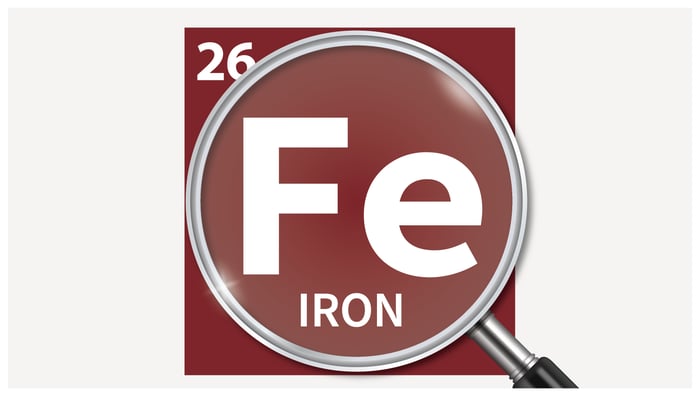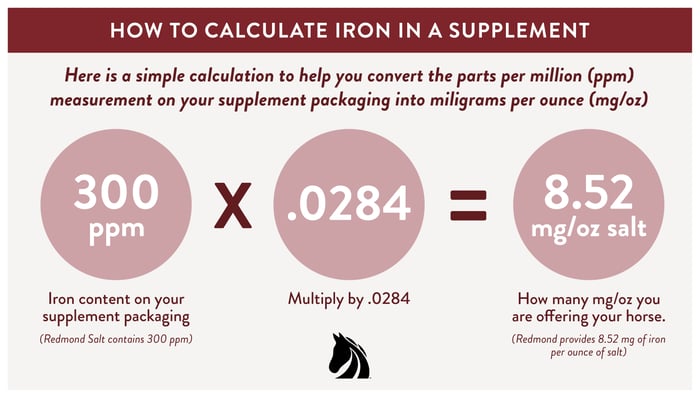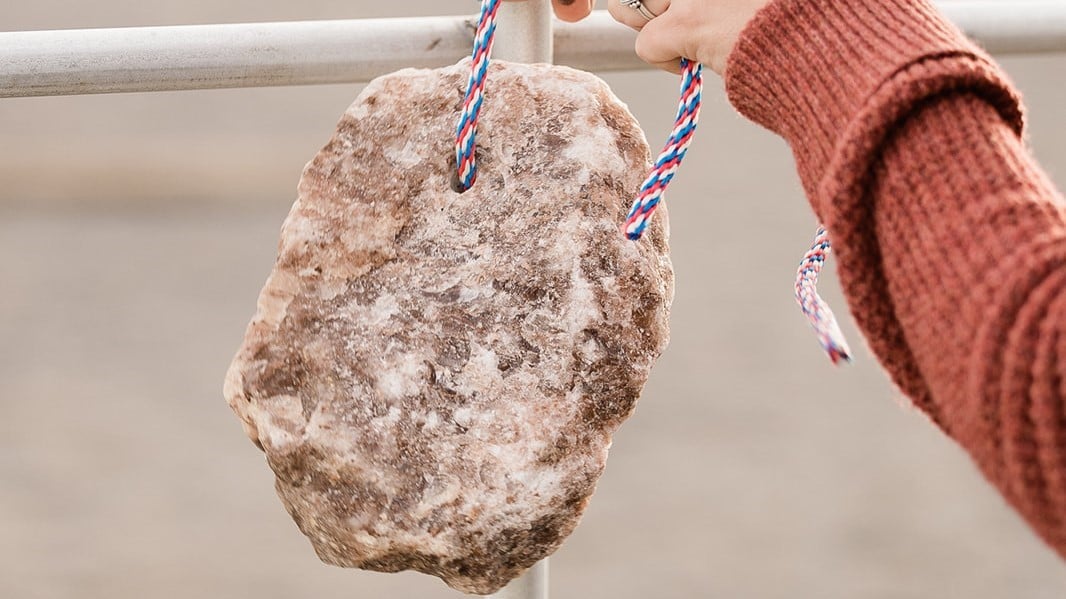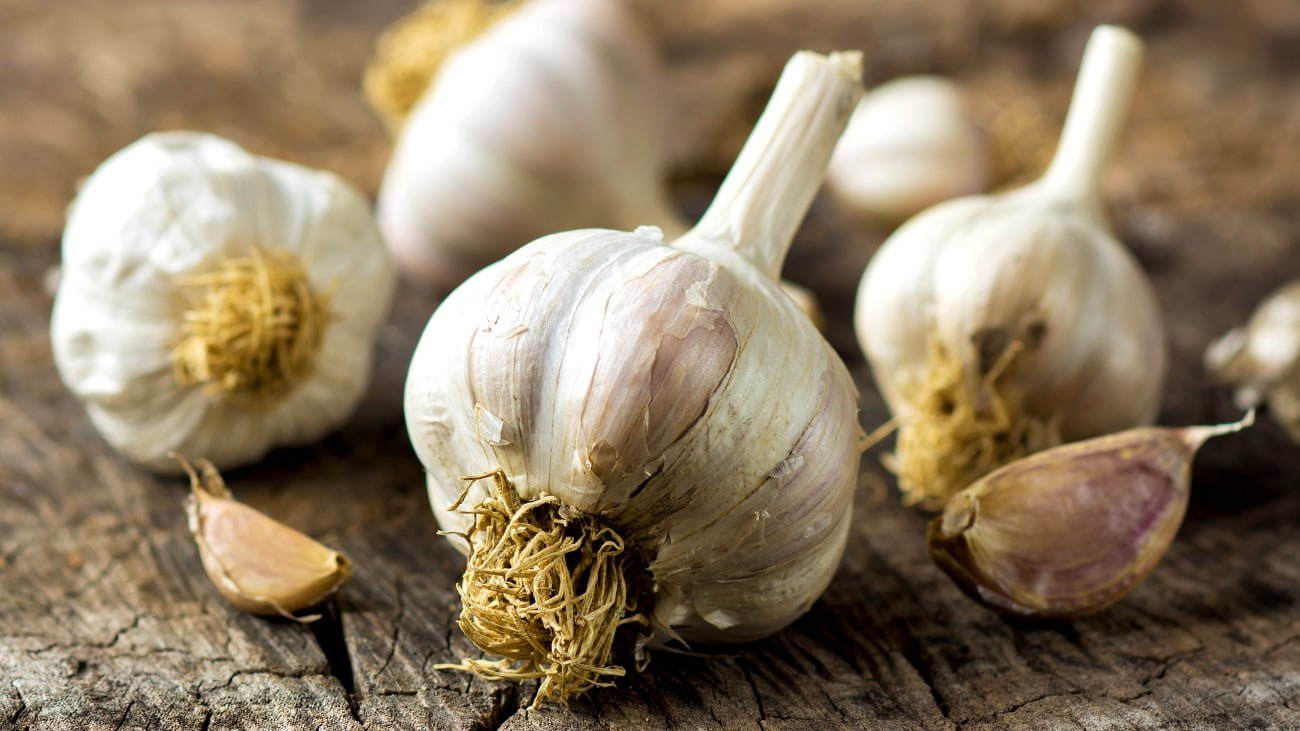Iron for Horses: How Much is Too Much?
June 22, 2023
Iron for Horses: How Much is Too Much?
Iron is a trace horse mineral that is absolutely essential for life. Iron overload, however, is also a potentially serious condition, and many articles have been written about high iron in horses' diets. So how much iron is too much?
With so much information (and some misinformation), it’s understandable horse owners want facts about how much iron is necessary and safe for their animals to consume. So let's talk iron—its life-giving benefits, how much horses need, and how to calculate the amount in your horse's feed and supplements.
Quick Facts
- Iron is the fourth most abundant element in Earth’s crust, and horses have been grazing its surface for centuries without issue.
- Following the National Research Council's daily forage recommendation, horses consistently (and most often safely) consume far more iron than the NRC recommends.
- Iron toxicity in horses usually occurs when we stray from normal and natural nutrition.
- Minerals are meant to work in harmony with each other. Minerals that are balanced by nature work best to nourish horses.

Importance of Iron as a Trace Mineral for Horses
Iron is a trace mineral necessary for life but needed in small amounts. Trace minerals are found in water, soil, rocks, and plants. All trace minerals are important in a horse's diet and necessary to maintain body structure, electrolyte balance, nerve conduction, muscle contraction, and other important functions.
Why Do Horses Need Iron?
According to the Minerals Education Coalition, iron is the fourth most abundant element in Earth’s crust. Iron is responsible for these important functions in horses:
- Making hemoglobin, a protein in red blood cells that carries oxygen from the lungs to muscles and tissues throughout the body
- Making myoglobin, a protein in the muscle cells that stores and delivers oxygen
- Protecting against anemia in horses
Symptoms of Iron Overload in Horses
- A bleached coat
- Red ends on dark manes and tails
- Hoof issues such as laminitis and abscessing
- Liver problems if iron toxicity is long-standing
How Much Iron Do Horses Need to Avoid Anemia?
The National Research Council's (NRC) Nutrient Requirement's for Horses, 5th Revised Edition, iron requirement for a mature horse is 40 to 50 ppm (parts per million). What does that mean? Let's look at the number in terms of feed.
Horses should receive 40-50 milligrams of iron per kilogram of feed to avoid deficiency—and it is rare for a horse to become deficient in iron. So how many kilograms of feed does a horse consume daily? The NRC states horses should eat 2% of their body weight per day in forage. That means an average 1,300-pound horse would eat around 12 kilograms (26 pounds) of feed per day.
Doing the calculation, according to the NRC, an average horse's iron requirement is approximately 600 milligrams day per day, with the range extending from 500 to 1,200 milligrams depending on the horse's size and exercise levels.
Symptoms of Iron Deficiency in Horses
- Lethargy or weakness
- Increased heart rate
- Low blood pressure
- Pale gums
- Poor performance
How Much Iron is in a Horse's Diet?
There are many studies showing the iron content of feeds. Here's an example of a peer-reviewed study that took samples of different forages to get iron content.
Typical forages contain approximately 250 milligrams of iron per kilogram of feed. That means 12 kilograms (26 pounds) of forage for the average horse would contain approximately 3,000 milligrams of iron.
Now, that number is well over the amount of iron the NRC suggests for horses, and yet is following the NRC's recommended daily forage requirement. So which of the NRC's recommendations is right—the amount of feed a horse should consume or the amount of iron a horse needs daily?
This kind of variation in the literature is actually quite normal. The researchers who make up the committee at the NRC are from universities across the United States and review piles of peer-reviewed data to establish the values they suggest. Notice that word suggest. The NRC makes suggestions or recommendations rather than mandates because of the variation of results in studies from which they draw.
Calculating Iron Intake in a Horse Supplement
We've covered how much iron horses typically receive from forage. What if you want to know exactly how much iron is in your horse's supplement? Packaging usually lists iron content in parts per million (ppm) or milligrams per kilogram (mg/kg). These measurements are equivalent to each other.
Here is a simple calculation to convert these metrics to milligrams per ounce (mg/oz): Multiply your ppm by .0284 to find out how many mg/oz of iron you are offering your horse in a supplement.

Nature Provided an Iron-Rich Diet for Horses
It's clear that horses have been eating large amounts of iron for eons. So how have horses worked and lived long lives for hundreds of years on an iron-rich diet?
Mineral requirements—including iron—are not an exact science. The mineral interaction web is extremely complex. For example, research suggests iron maintains a close relationship with zinc, copper, and manganese. It's likely that iron levels alone don't usually cause problems for horses as much as an imbalance of a group of minerals.
Nature has also provided protections for iron overload by limiting the amount a horse's body can absorb. The NRC states: “Iron in feedstuffs and minerals are in the ferric form (Fe+3) and are poorly absorbed in the intestinal tract. Enterocytes regulate iron absorption efficiency, and any more than 2% entering the system is excreted.” (Beard and Dawson, 1997.)
So what can we conclude from the NRC's recommendations? Horses naturally consume high iron quantities in feed, their bodies are equipped to excrete excess iron, and an overload usually occurs when an imbalance of a group of minerals occurs or we stray from normal and natural horse nutrition.
Find Mineral Balance with Redmond
Redmond can help bring balance to your horse's nutrition. Our sea salt products—like Redmond Rock or Daily Red Crushed and Daily Red Fortified loose salts—contain full-spectrum, naturally occurring trace minerals to help address imbalances and deficiencies. Redmond horse supplements are unrefined and mined from an ancient mineral deposit in Utah, USA. You can feel confident our minerals are balanced and work in harmony to nourish your horse the way nature intended.
Learn More
- Find out how much iron is in Redmond Rock and Daily Gold horse supplements.
- Learn the signs of selenium deficiency in horses and and how much they need daily.
© Redmond Equine 2023. All rights reserved.
Related posts

How Much Iron Is in Redmond Equine Products?
Iron requirements for horses are suggested at 500 to 1,200 mg/day. Is my horse getting too much iron in Daily Gold and Redmond Rock?
February 27, 2025

Do You Know How Much Garlic To Feed Horses?
Garlic has many health benefits for horses, but do you know how much garlic to feed horses? Get the right amount with Redmond Rock Crushed with...



